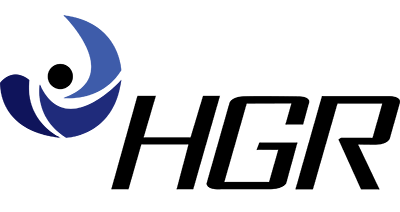
(courtesy of Allan Maggied, plant manager, Chesterfield Steel)
It all started in the early 1940s in an office on Dille Road when Baird Tewksbury opened Chesterfield Steel. The original part of today’s building was an ALCOA storage shed located on Harvard Avenue. Mr. Tewksbury had the building disassembled and reassembled, with additions, at the current 222nd and Tungsten location in Euclid, Ohio. The facility now is 117,000 square feet. Ed Weiner became Mr. Tewksbury’s partner in 1945. Somewhere in the late 1950s to early 1960s Mr. Tewksbury sold his half of the business to Ernie Tallisman. For a short time, the business was called Weiner-Tallisman. After Mr. Weiner’s passing in 1967, the Weiner family sold their portion of the business to Mr. Tallisman, and the Tallisman family owned the business until 2008 when it was purchased by Lerman Enterprises and became Steel Warehouse Cleveland, LLC, dba Chesterfield Steel.
The business purchases .012 – .410-inch-thick flat-rolled sheet steel coils from various mills, and some from Holland. Coils are shipped into the Port of Cleveland and trucked to Euclid where they are processed to customer specs by slitting, blanking, or sheeting. Historically, Chesterfield has found a niche in the hot-roll pickle product.
When carbon steel coils are produced, they first come off the production line as a “black coil” due to the carbon left on the surface from rolling. To remove the carbon, these coils are run through an acid bath called “pickling,” and then oiled. Additional rolling and/or coating may be done to the coil depending on the end use of the customer’s part.
At Chesterfield, the end use of the customer’s part is the driver of our process. To ensure our customers get the “right steel” to make the part, we start with the part we obtain from the customer. The part goes through an intense and thorough examination and assessment in order to spec out the chemical, physical, and surface properties needed. This entire process is handled by our quality department, as well as considerable collaboration with the producing mill. Once the specs are determined, the purchasing department orders the steel.
Incoming coils typically weigh 10,000 – 50,000 pounds each. Once in the Euclid facility, a coil to be processed will be unloaded from the truck and moved with an overhead crane to the respective bay where it will be processed. A coil to be slit will be loaded onto a mandrel, opened, and threaded through a series of rotating knives. Prior to running, the knives are set up to slit the coil into strips with tolerances typically holding +/-.005 inches in width. These same strips are separated and rewound onto an exit mandrel to complete the slitting process. Once wound, each strip, now a smaller-width coil, is secured with a steel strap around its circumference. The smaller-width coils are pushed off the mandrel onto a packaging machine where lateral straps are fitted through the inside and outside diameters, sealed, mechanically placed on a skid, weighed and stored as finished goods until they are trucked to the customer.
The other process that takes place at Chesterfield involves taking a wide coil, loading it onto the mandrel of a different type machine. The original coil width is threaded through a corrective leveler to shape-correct the wide strip and then progresses to a shear that cuts the strip to produce sheets to a predesignated size per the customer’s specification. These sheets are checked for flatness and digitally checked for length, width, and squareness required by the customer. The sheets automatically are stacked on a skid so that they end up looking like a big deck of cards. Once completed, they also are packaged with steel strapping and stored as finished goods until they are trucked to the customer.
Customers have primarily been in the automotive sector. As a second-tier supplier, Chesterfield sends these coils and sheets to the stampers and roll formers to make the parts that up in domestic and foreign cars and trucks. The end-use parts may be bearings, air conditioning compressors, bumpers, engine pulleys, impellers, airbags, and transmission parts. Some non-transportation parts include CO2 cartridges for air guns, cooking range burner bowls, casket parts, etc.
A team of 49 associates produces these thousands of tons of steel each month. The company has very low turnover, as many of Chesterfield employees have been there for years. “We may not be perfect, but it is a great place to work,” says Allan Maggied, plant manager. Tried and true processes that are continuously improved by team members’ participation have sustained the company. Things change. As we look down 222nd Street, although still the business corridor of Euclid, it isn’t the bustling manufacturing area it used to be. In the past, Chesterfield had deliveries within a stone’s throw away. Now, the largest shares are out of town, and even out of state.
Since most employees have been here as long as they have, there is the Chesterfield culture that has evolved throughout the years. With 70-plus years in the business, we have much to be proud of. As the Chesterfield family, we certainly have been through thick and thin, and will continue to do so. Currently, we are facing the challenges of the 232 Steel Tariffs, trucking shortages, finding a maintenance tech, etc. If there is one thing that we’ve learned, we know only by listening and working with each other will we be able to continuously improve and make our family the desired place to be. We are proud to say we work at Chesterfield Steel in Euclid, Ohio!

